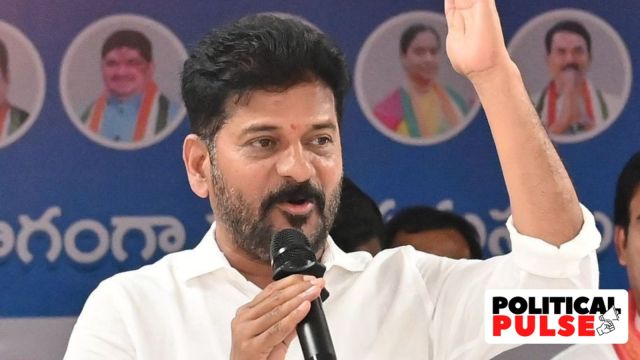After Andhra, Telangana likely to scrap two-child policy: Why the South is worried
Top government sources say the move is aimed to equip Telangana to deal with the rise in its elderly population and have more youngsters by 2047.
 If scrapped, Telangana will become the sixth state in the country to rescind the policy. (Photo: X)
If scrapped, Telangana will become the sixth state in the country to rescind the policy. (Photo: X)Amid the debate over population control and weeks after Andhra Pradesh did away with its “two-child policy”, which barred people with more than two children from contesting local body polls, neighbouring Telangana is likely to follow suit.
A part of undivided Andhra Pradesh till 2014, Telangana, like Andhra Pradesh, will have to amend its Panchayat Raj Act, 2018, for the policy to be scrapped and a file in this regard will soon be presented before the state Cabinet, a top government source told The Indian Express.
“There is enough evidence that shows we are moving towards a time when the population of the state will age. It is now time to reverse a few family planning measures which were implemented earlier,” the senior government official said and added that by 2047, Telangana would “need more youngsters or children to be around”.
“Telangana too thinks it should be equipped to deal with an increase in the state’s elderly population,” the official said.
Andhra Pradesh Chief Minister N Chandrababu Naidu earlier said his government would provide incentives to those who have more children, a policy adopted by several European nations. Andhra Pradesh, while scrapping the policy, had also cited concerns about low fertility rates and ageing population. State Information and Public Relations Minister, K Parthasarathy last month said that Andhra’s Total Fertility Rate (TFR) was abysmally low.
“While the national TFR is 2.11, it is only 1.5 in the state. This could affect the productivity of the state in the long run,” he said.
While demographers say that scrapping the policy will not reverse ageing, the moves of the Telugu states are seen to be connected to delimitation, which is population-based and is likely to be taken up in 2026.
Southern states, which have implemented family planning better and have been up in arms against the Centre over getting a “raw deal” in the devolution of taxes, fear that the delimitation may lead to few Lok Sabha seats as compared to North India and thus reduce their political importance.
Naidu is not the only leader to express concerns about the ageing population and declining fertility rates. Bharat Rashtra Samithi (BRS) working president K T Rama Rao told The Indian Express in an interview that he had urged the Centre “not to punish” southern states for successfully implementing family planning.
“I hope the Centre does not resort to misadventures with the number of seats, which must be increased based on economic performance … Injustice in the form of delimitation will not be tolerated and the people of the southern states will come out together against it,” he said.
Close on the heels of Naidu’s remarks in October on the need for people to have more children, Tamil Nadu Chief Minister M K Stalin, referring to an old Tamil blessing, said: “That blessing doesn’t mean beget 16 children … But now a situation has arisen where people think they should literally raise 16 children and not a small and prosperous family.”
On the other hand, at an event in Nagpur on Sunday, RSS chief Mohan Bhagwat said the population decline was a matter of great concern and advocated a three-child policy. “The population policy of our country, which was decided in 1998 or 2002, has stated that the growth rate should not go below 2.1. This means we need more than two children, that is three,” he said and added that if the growth rate falls below 2.1, our society “will perish on its own”.
The “two-child policy” came into being after it was found that population control measures between the censuses of 1981 and 1991 were not yielding the expected results.
This led the National Development Council (NDC) to set up a committee chaired by then Kerala Chief Minister K Karunakaran, which recommended that people with more than two children should not be allowed to hold government posts, from the panchayat level to Parliament. The recommendations were subsequently adopted by various states.
In total, 13 states had adopted the policy. Rajasthan became the first state to adopt it in 1992 followed by Andhra Pradesh (then undivided) and Haryana in 1994.
If scrapped, Telangana will become the sixth state in the country to rescind the policy. While Andhra Pradesh recently rolled it back, Chhattisgarh, Haryana, Himachal Pradesh, and Madhya Pradesh scrapped it in 2005.
- 01
- 02
- 03
- 04
- 05































